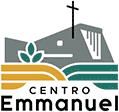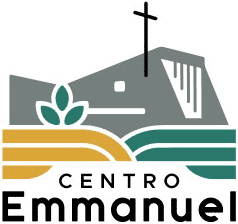Every time we open a tap we connect with a watercourse.
These words resonated during the seminar “Water, sap of a world in motion”, held at the Emmanuel Center between September 1 and 3. The expression, which was intended to be colloquial, is a good synthesis of a general feeling. We truly need to become aware of the connection that exists between the quality of the water we use and the balance of the Earth. We need to recover that connection, to understand that what happens in ecosystems impacts our lives.
To achieve this objective, the words were condensed into actions, gestures that were present during the seminar. There, the time of discussion in groups and devotion was accompanied by a time of work, planting native trees as a way of remembering the contribution that these species make to the balance of ecosystems and the quality of our waters.
The teacher and the tap
When I was little and they sent me to brush my teeth, every time I turned on the tap I imagined that in another part of the world someone was left without water. And when it closed, the water came back. That magical budget had led me to such disciplined water use that I felt like I was truly helping someone if I turned off the faucet while soaping my hands. The concept was to open and close, so that there is no shortage on the other side. I guess the teacher did her homework well, because she instilled in an eight-year-old ‘botija’ like me a sense of responsibility over water that was a bit superegoic. It was a game, it is true, but it had a very important share of responsibility. By turning off the faucet, I felt like I was connecting with other places in the world where water was not plentiful. And I felt like I was collaborating.
After two days of discussion and exchange, this seminar moved our waters. In my case, it ended up shattering what was left of that childhood illusion of responsibility: environmental problems are not solved at home. You cannot transfer a global problem to the domestic space. Yes, take care of the water at home, but you have to look beyond the tap.
On this topic, Carla Kruk (aquatic ecologist, CURE-UdelaR) was emphatic when saying that the water crisis and the problems of access to drinking water are not solved with responsible domestic consumption. In a world in which fresh water sources are limited (2.5% of the total water on the planet), what reaches our homes is a smaller proportion. Carla focused attention on the agricultural and industrial sectors, which use 89% of the extracted freshwater, and whose actions also impact the ecosystems that provide us with water. A current example is the increasingly frequent cyanobacterial blooms, whose solution does not depend on what we do at home with our teeth, but on the production models we accept. These are the ones that have a great impact on the water that will reach the OSE intakes and our beaches.
Let her take a bath!
In his presentation, anthropologist Javier Taks (UdelaR, coordinator of the UNESCO Chair of Water and Culture) reflected on the value that water has in our present. For Taks, we live in a historical time marked by human action, which transforms the environment in which we live. Today there is talk of a new geological era, the “anthropocene”, although other authors propose terms such as “capitalocene” or “developmentocene”. Human activity has changed the earth’s surface, and that transformative power is related to culture. Regarding water, its use is related to the meaning that each culture assigns to it: the same link with water will not exist in a culture in which it is seen as an infinite resource from which profit can be extracted, or in a culture in which which water represents a divine gift, a common good or an ancestral inheritance. Taks recalled that access to water and its care is not a personal problem but a collective, cultural, and also economic problem.
At this point, Carlos Santos (doctor in Social Sciences and professor at UdelaR, member of the National Commission for the Defense of Water and Life) added that social militancy and the exercise of citizenship are central. An example of this is the constitutional reform of 2004, in which it was established that access to drinking water and sanitation are fundamental human rights, for which the State has responsibility (Art. 47). This novelty in the Magna Carta was promoted by a citizen initiative, thanks to the support and mobilization of different civil society organizations. Today too, citizen action is essential: inform yourself, participate, generate forms of incidence.
Taks and Santos agreed on the perverse nature of some narratives, which defend projects in which water seems to be an inexhaustible source, or stories in which the responsibility of the State and the productive model are made invisible, to pass the buck to what people do. with water at home. As an example, Javier Taks recalled the story of a woman he interviewed some time ago. She had very few comforts in her house, poor heating, she worked very long days. When she arrived at her house, her only pleasure was to take a long shower, which warmed her before going to bed. It was her only privilege, but the dominant narrative said that was wrong. “You have to take care of the water, you have to take short showers.” Oh really? -Taks asked- Is this how we are going to solve a water crisis, taking away the only enjoyment that a poor woman has? “No! Let her take a bath!”
To cross the river
One last image that we found very interesting is that of the river crossing. To face the water crisis (from which we have not emerged, although some stories affirm it), a paradigm shift, an economic and cultural change, is necessary. A transformation that involves soaking, transforming, risking to cross.
In her presentation, biologist Miriam Gerhard (specialized in natural resources and biodiversity, CURE-UdelaR) added an ecosystem perspective to the worrying news. By studying the effect that nutrient and temperature variations have on lakes, Miriam recognizes the transformations that climate change and eutrophication processes are generating in bodies of water. She points out that ecosystems provide many services, which are often made invisible by economic activity. For example, agriculture transforms an ecosystem so that it generates food, but that ecosystem already provides other services: oxygen generation, biodiversity shelter, freshwater retention… What happens when an ecosystem is irreversibly modified so that it only produce food? It will do this for a while until it runs out, and after that it will not be able to provide any of the services it had previously provided.
For Miriam Gerhard, despite the discouraging news, change is still possible. A key is to recognize the contribution that natural ecosystems make to life, and the way our species depends on them. The riverside forest, the wetlands, the lake landscape are not wasted territory, they are valuable in themselves. We can’t push them to infinity, because at some point they run out. Therefore, consumption is another form of incidence: we can inform ourselves and choose forms of consumption that have less impact on water ecosystems. Imported or local, sustainable, agroecological or conventional is not the same. It’s another way of putting pressure.
At this point the question arises about the place that religions can have in the formation of a culture of water care. At this point, Mercedes García Bachmann (biblist specialized in Old Testament, IELU) problematizes the readings that are often made of biblical texts, in which we seek from the present answers to problems that did not exist in Antiquity. She points out that, although water has a very special symbolic meaning in the Bible, there are no admonitions or recommendations about its care, simply because that was not necessary. In a culture in which water is a very limited gift from God, there was no need to generate a text that recommended its care. Although there are texts in which water – due to absence, excess or poor quality – represents a problem.
“The biblical world – says Mercedes – did not speak in terms of climate change or carbon emissions, but that did not stop it from evaluating some of the phenomena that they perceived as abnormal, worrying and even terrifying.” To analyze them, we must not lose sight of issues such as poverty, gender and race. Because in biblical Palestine, as in today’s Uruguay, floods and droughts do not have a democratic impact; There, as here, the rivers and streams, the springs, wells and cisterns, are not distributed uniformly. Not everyone drinks the same waters.
The last of our guests was the one who invited us to cross the river. Enrico Benedetto – Italian philosopher, journalist and Waldensian pastor – proposed an interpretation of the story of the crossing of the Jordan River in which water appears as the protagonist. Crossing the Jordan (book of Joshua, chapters 3 and 4) the people of Israel enter a territory that they will make their home, but which is not an empty territory and is subject to disputes. That narrative was later appropriated by other peoples to justify other conquests and other wars, such as the colonization of America. In his proposal, however, Enrico wants to see the importance of the idea of crossing as birth, water breaking, being born from the mother’s womb. From this perspective, the town that passes by the river is born again, it has a new opportunity. He gathers twelve stones from the bed and piles them up as a memorial.
We have been born again, we have crossed the river. We ask ourselves today if the water crisis does not put us in front of a river that we must cross. Not to subjugate or colonize, not to continue exploiting or to consume more. A river that we must cross to change our perspective.
We are going through a historic crisis that puts the availability of water and its ecosystems to the limit, we cannot forget it. To find exits, to change our perspective, we must stack the stones and mark the place. We cannot pretend that everything will be the same again. You can not pass.






























